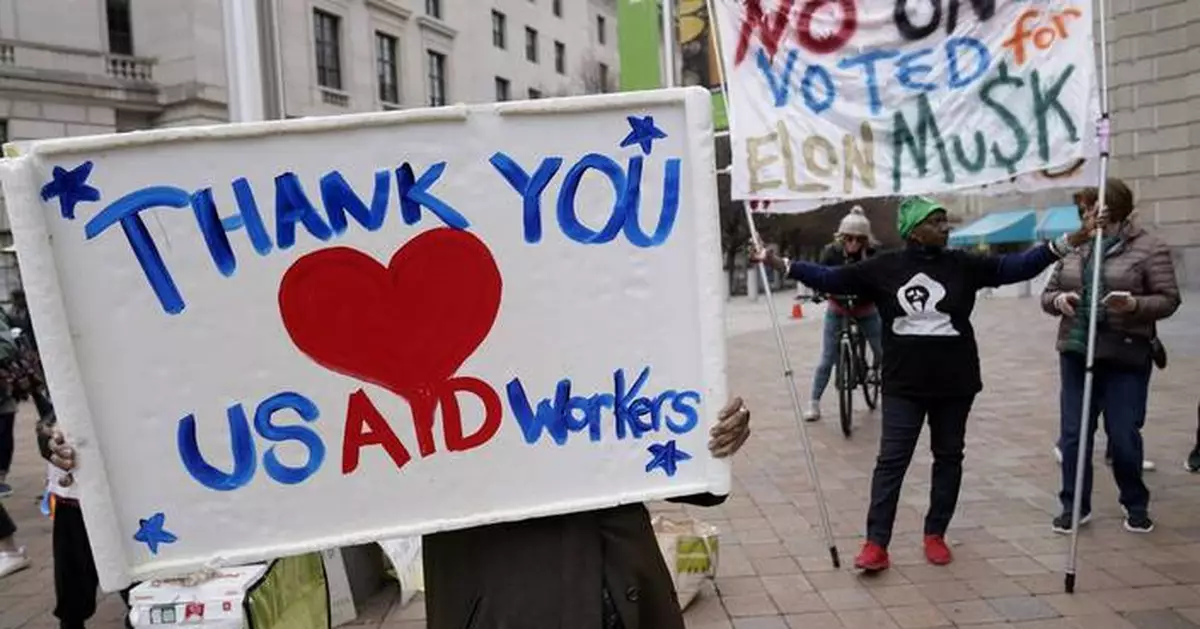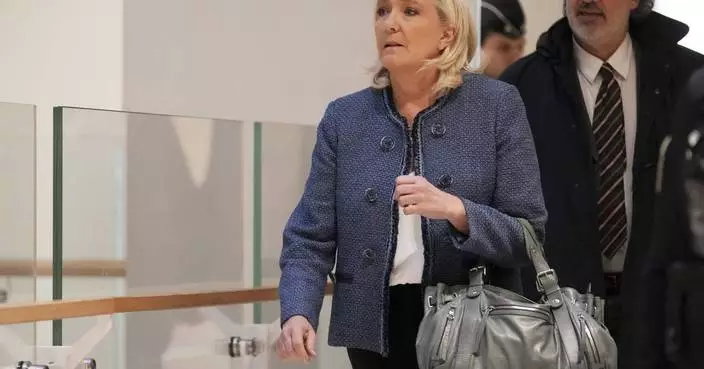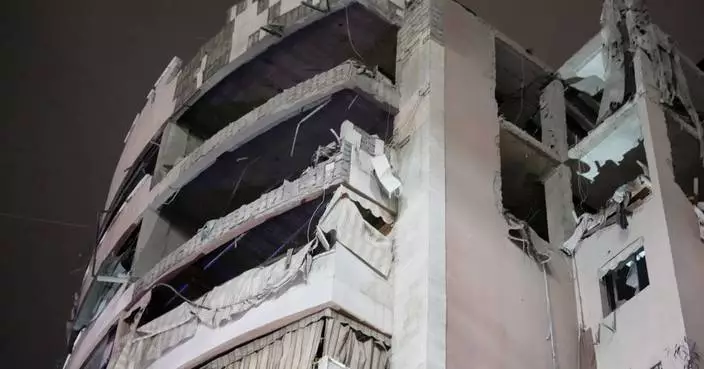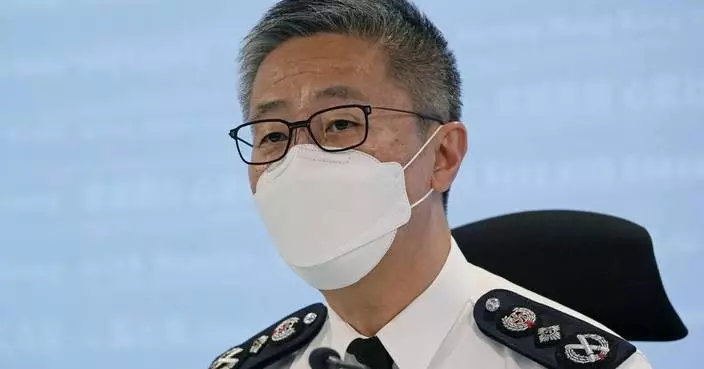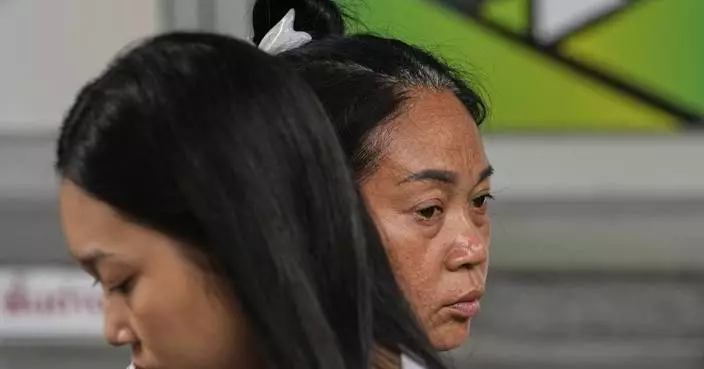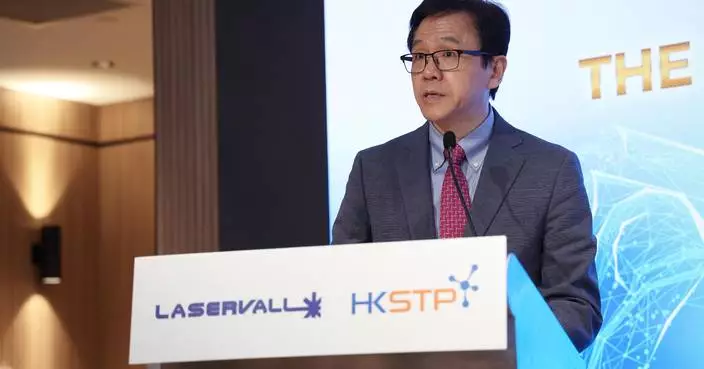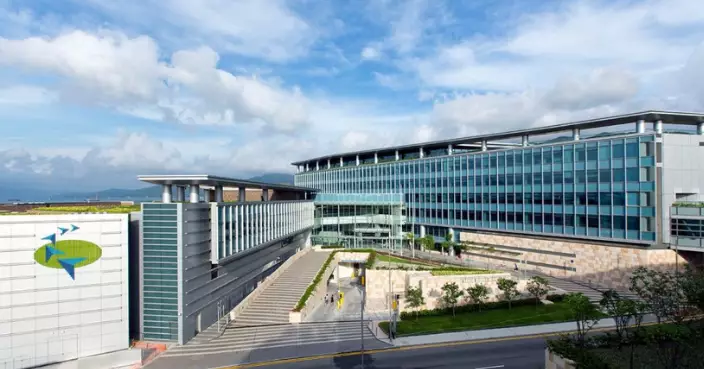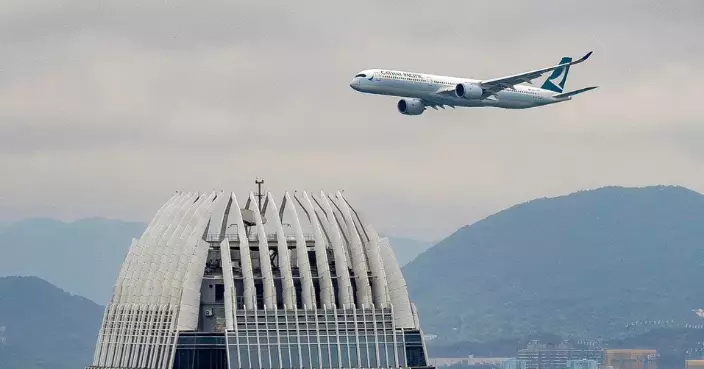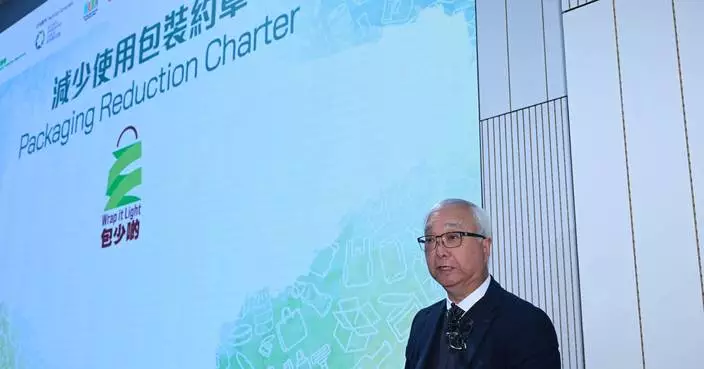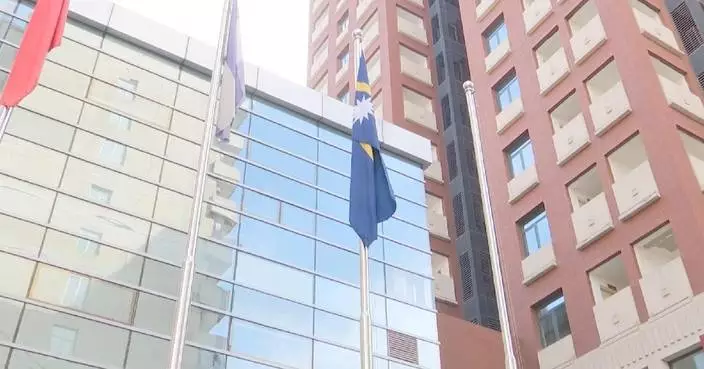WASHINGTON (AP) — A federal appeals court on Friday lifted an order blocking Elon Musk’s Department of Government Efficiency from further cuts at the U.S. Agency for International Development.
Even before the ruling, the Trump administration on Friday took some of the last remaining steps in breaking up USAID.
A Musk associate told staffers that by September the Trump administration will have eliminated “substantially all” USAID jobs. The firing emails began reaching staffers' inboxes within minutes of the announcement from Jeremy Lewin, a former member of Musk’s DOGE team, who was given senior duties at the agency this month.
The administration’s aim is to eliminate the agency’s “independent operation” by September, Lewin wrote staffers in the notice, which was obtained by The Associated Press.
In a separate notice, Secretary of State Marco Rubio said the administration had formally notified Congress on Friday of its plans to cut most USAID programs and move surviving functions under the State Department.
The court order that had blocked DOGE from further cuts was in response to a lawsuit that was among the first filed against Musk himself. It argued that DOGE's actions were unconstitutional because he was wielding significant power without being elected or Senate approved.
A lower court judge agreed, but the three-judge appeals court panel sided with the Trump administration, at least for now. It found that while DOGE played a part in the dismantling of USAID, the cuts were approved by government officials.
The 4th U.S. Circuit Court of Appeals found that social-media posts like Musk’s declaration that he “fed USAID into the wood chipper" didn't legally prove he was making the orders.
Rather, the evidence indicates he was acting as an adviser to President Donald Trump, carrying out his policies of rooting out what he calls waste, fraud and abuse in the federal government, the court found.
“While defendants’ role and actions related to USAID are not conventional, unconventional does not necessarily equal unconstitutional,” U.S. Circuit Judge Marvin Quattlebaum, who was appointed by Trump, wrote. More evidence may be unearthed as the lawsuit keeps playing out but for now the record doesn’t support barring DOGE from USAID, he said.
If the plaintiffs say that the dismantling of USAID violates the constitutional separation of powers, those claims should be directed at the administration, the appeals court suggested.
Norm Eisen, an attorney for the plaintiffs, said they disagreed with the ruling but took some solace in the judges leaving open the possibility that the USAID dismantling was unconstitutional on other grounds.
“This fight is far from over -- it’s just beginning,” Eisen said.
The Trump administration did not immediately respond to a message seeking comment.
Friday's order halted a ruling from U.S. District Judge Theodore Chuang in Maryland in a lawsuit filed by former USAID employees. He found DOGE’s moves to dismantle the agency were likely unconstitutional.
Chuang had required the Trump administration to restore email and computer access to USAID employees, including those put on administrative leave, though he stopped short of reversing firings or fully resurrecting the agency.
Democratic lawmakers have challenged the Trump administration’s legal standing to eliminate the six-decade-old aid and development agency as an independent body, or to cut its congressionally mandated funding, without congressional approval.
The Trump administration and Musk accuse USAID of being wasteful and advancing a liberal agenda. Democratic lawmakers and other USAID supporters say the aid and development work overseas protects U.S. strategic interests and is best run by USAID program managers.
Trump cut off foreign assistance funding through USAID and State with an executive order Jan. 20, the day he took office. The administration and Musk since then have closed USAID headquarters, pulled all but a fraction of USAID staff around the world off the job, and abruptly terminated thousands of aid and development contracts.
As a result of the shutdown, USAID partners have had to cut or trim programs or lay off staff, including some of the ones that normally would be aiding in the response to Friday’s Southeast Asia quake, or to famine in Sudan and infectious disease outbreaks in Africa.
The administration initially gave USAID staffers abroad as few as 30 days to return home. Staffers protested, saying that made it impossible for them to sell houses, pull children from school, or return home to pack if they had been on medical leave.
Lewin’s note Friday did not exempt staffers abroad from the firings, but indicated they would be allowed a phased return to the U.S. — where many no longer have homes or jobs — over the summer.
AP Diplomatic Writer Matthew Lee contributed.
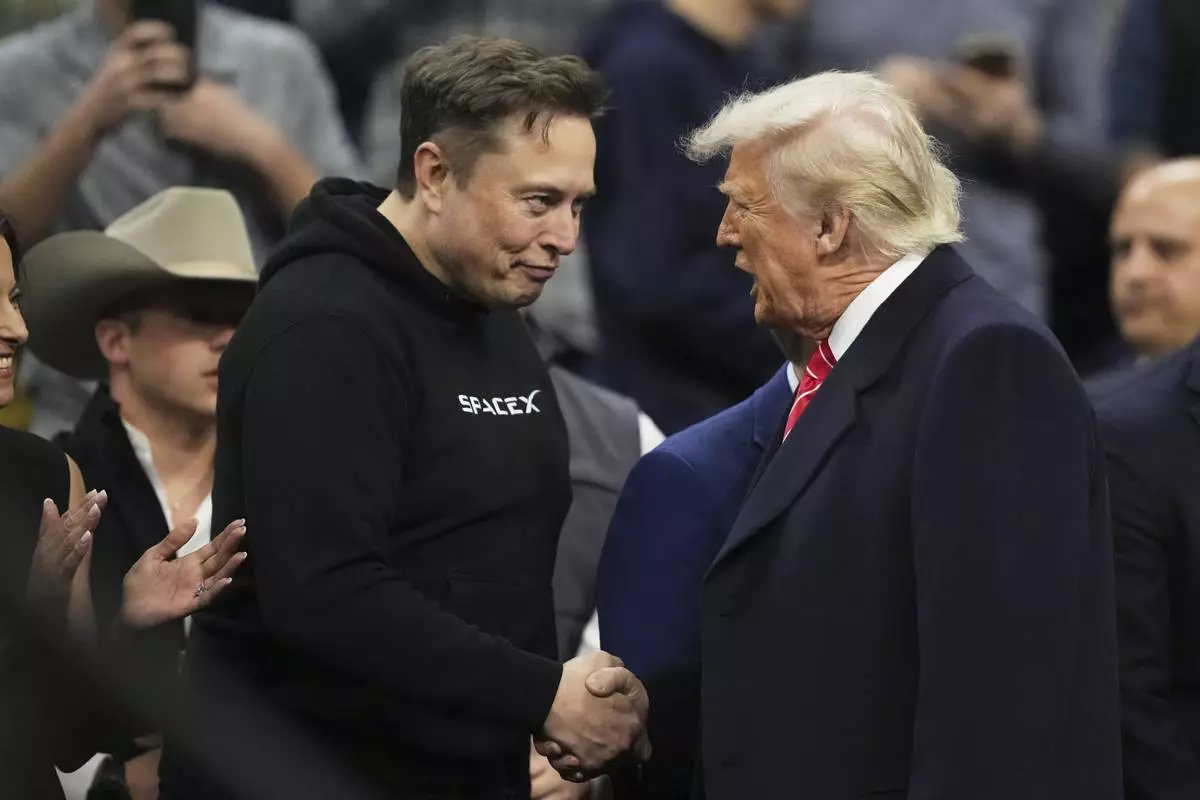
Elon Musk, left, shakes hands with President Donald Trump at the finals for the NCAA wrestling championship, Saturday, March 22, 2025, in Philadelphia. (AP Photo/Matt Rourke)
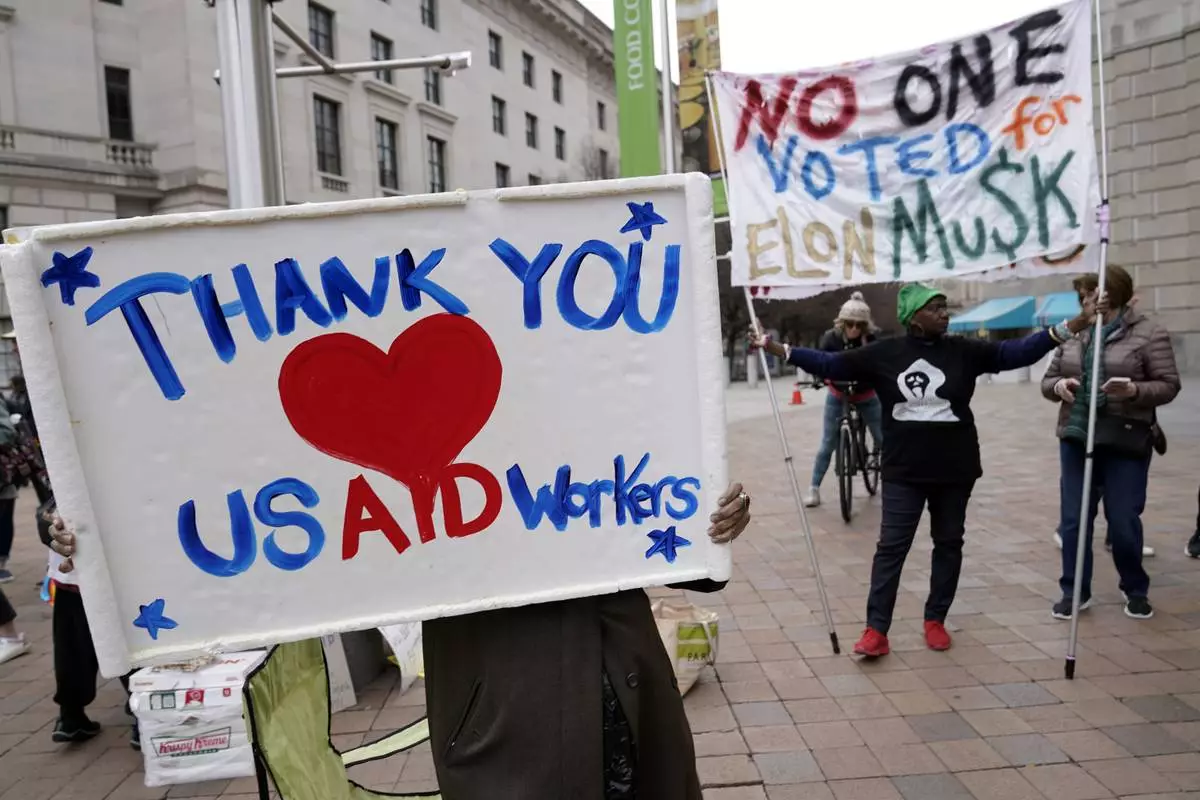
FILE - Supporters cheers the United States Agency for International Development (USAID) workers, as they carry their personal belongings after retrieving them from the USAID's headquarters in Washington, Thursday, Feb. 27, 2025. (AP Photo/Jose Luis Magana, File)
SEOUL, South Korea (AP) — South Korea’s Constitutional Court will rule Friday on whether to formally dismiss or reinstate impeached President Yoon Suk Yeol — a decision that either way will likely deepen domestic divisions.
The court has been deliberating his political fate after conservative Yoon was impeached by the liberal opposition-controlled National Assembly in December over his brief imposition of martial law that has triggered a massive political crisis.
Millions of people have rallied around the country to support or denounce Yoon. Police said they’ll mobilize all available personnel to preserve order and respond to possible acts of vandalism, arson and assault before and after the court's ruling.
The Constitutional Court said in a brief statement Tuesday that it would issue its ruling at 11 a.m. Friday and that it will be broadcast live.
Removing Yoon from office requires support from at least six of the court's eight justices. If the court rules against Yoon, South Korea must hold an election within two months for a new president. If the court overturns his impeachment, Yoon would immediately return to his presidential duties.
Jo Seung-lae, a spokesperson for the main liberal opposition Democratic Party which led Yoon's impeachment, called for the court to “demonstrate its firm resolve” to uphold the constitutional order by dismissing Yoon. Kwon Youngse, leader of Yoon’s People Power Party, urged the court’s justices to “consider the national interest” and produce a decision that is “strictly neutral and fair.”
Many observers earlier predicted the court’s verdict would come in mid-March based on the timing of its ruling in past presidential impeachments. The court hasn’t explained why it takes longer time for Yoon's case, sparking rampant speculation on his political fate.
At the heart of the matter is Yoon’s decision to send hundreds of troops and police officers to the National Assembly after imposing martial law on Dec. 3. Yoon has insisted that he aimed to maintain order, but some military and military officials testified Yoon ordered them to drag out lawmakers to frustrate a floor vote on his decree and detain his political opponents.
Yoon argues that he didn’t intend to maintain martial law for long, and he only wanted to highlight what he called the “wickedness” of the Democratic Party, which obstructed his agenda, impeached senior officials and slashed his budget bill. During his martial law announcement, he called the assembly “a den of criminals” and “anti-state forces.”
By law, a president has the right to declare martial law in wartime or other emergency situations, but the Democratic Party and its supporters say South Korea wasn’t in such a situation.
The impeachment motion accused Yoon of suppressing National Assembly activities, attempting to detain politicians and others and undermining peace in violation of the constitution and other laws. Yoon has said he had no intention of disrupting National Assembly operations and detaining anyone.
Martial law lasted only six hours because lawmakers managed to enter the assembly and vote to strike down his decree unanimously. No violence erupted, but live TV footage showing armed soldiers arriving at the assembly invoked painful memories of past military-backed dictatorships. It was the first time for South Korea to be placed under martial law since 1980.
Earlier public surveys showed a majority of South Koreans supported Yoon’s impeachment. But after his impeachment, pro-Yoon rallies have grown sharply, with many conservatives fed up with what they call the Democratic Party’s excessive offensive on the already embattled Yoon administration.
In addition to the Constitutional Court’s ruling on his impeachment, Yoon was arrested and indicted in January on criminal rebellion charges.Yoon was released from prison March 8, after a Seoul district court cancelled his arrest and allowed him to stand his criminal trial without being detained.
Ten top military and police officials have also been arrested and indicted over their roles in the martial law enactment.
__
Associated Press writer Kim Tong-hyung contributed to this report.
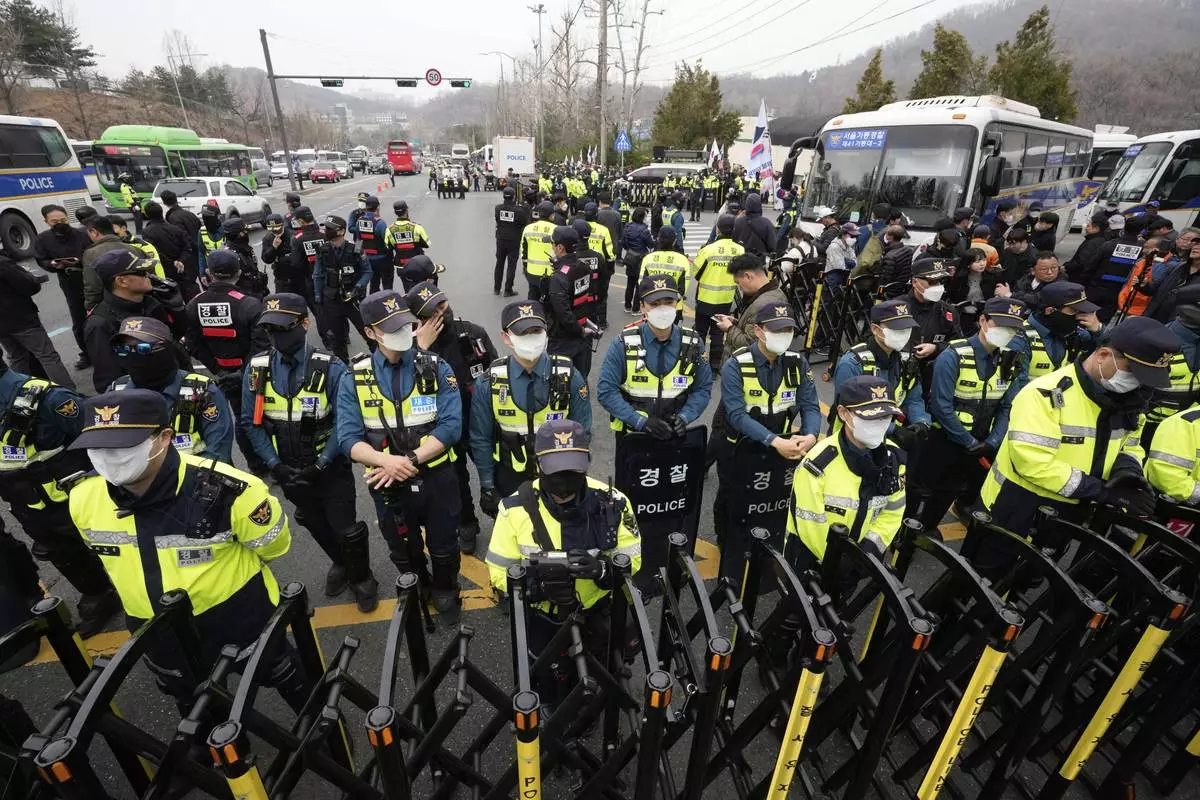
Police officers stand guard to block an anticipated farmers' march calling for impeached South Korean President Yoon Suk Yeol to step down in Seoul, South Korea, Tuesday, March 25, 2025.(AP Photo/Ahn Young-joon)
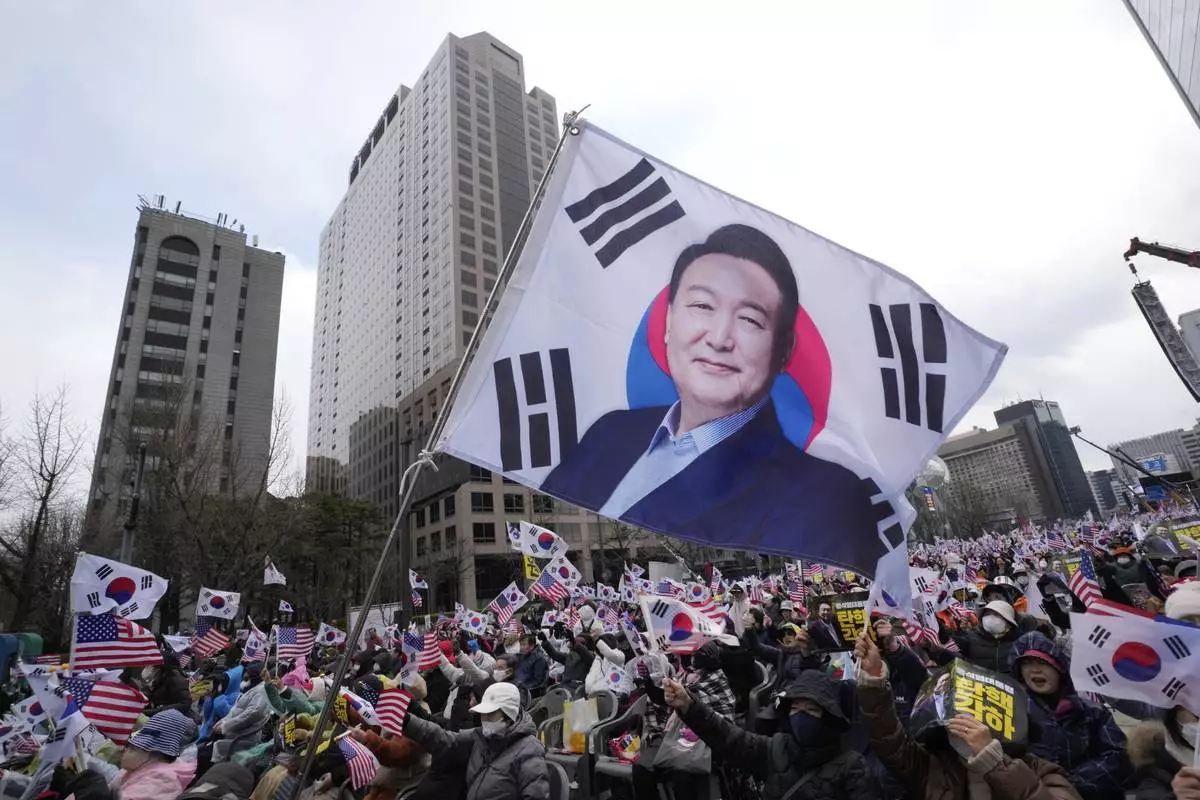
Supporters of impeached South Korean President Yoon Suk Yeol stage a rally to oppose his impeachment in Seoul, South Korea, Saturday, March 29, 2025. (AP Photo/Ahn Young-joon)
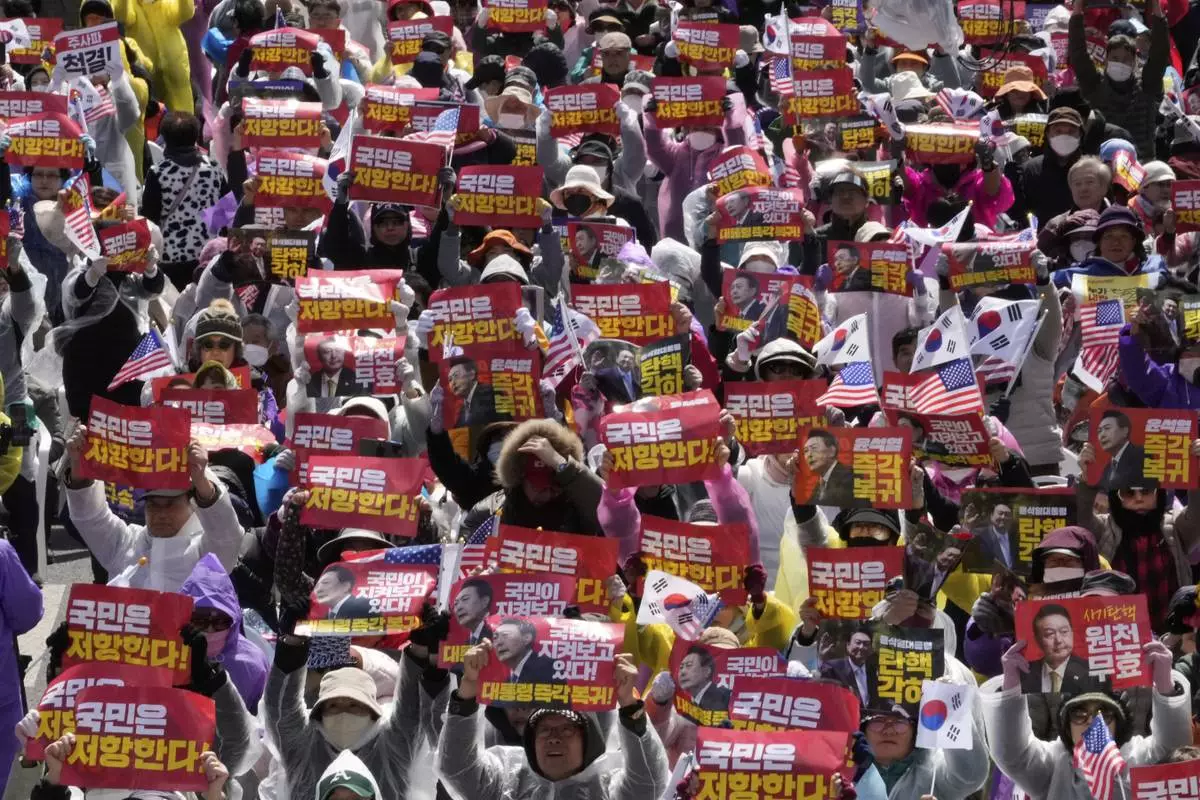
Supporters of impeached South Korean President Yoon Suk Yeol attend a rally to oppose his impeachment in Seoul, South Korea, Saturday, March 29, 2025. The letters read "Yoon Suk Yeol's immediate return." (AP Photo/Ahn Young-joon)
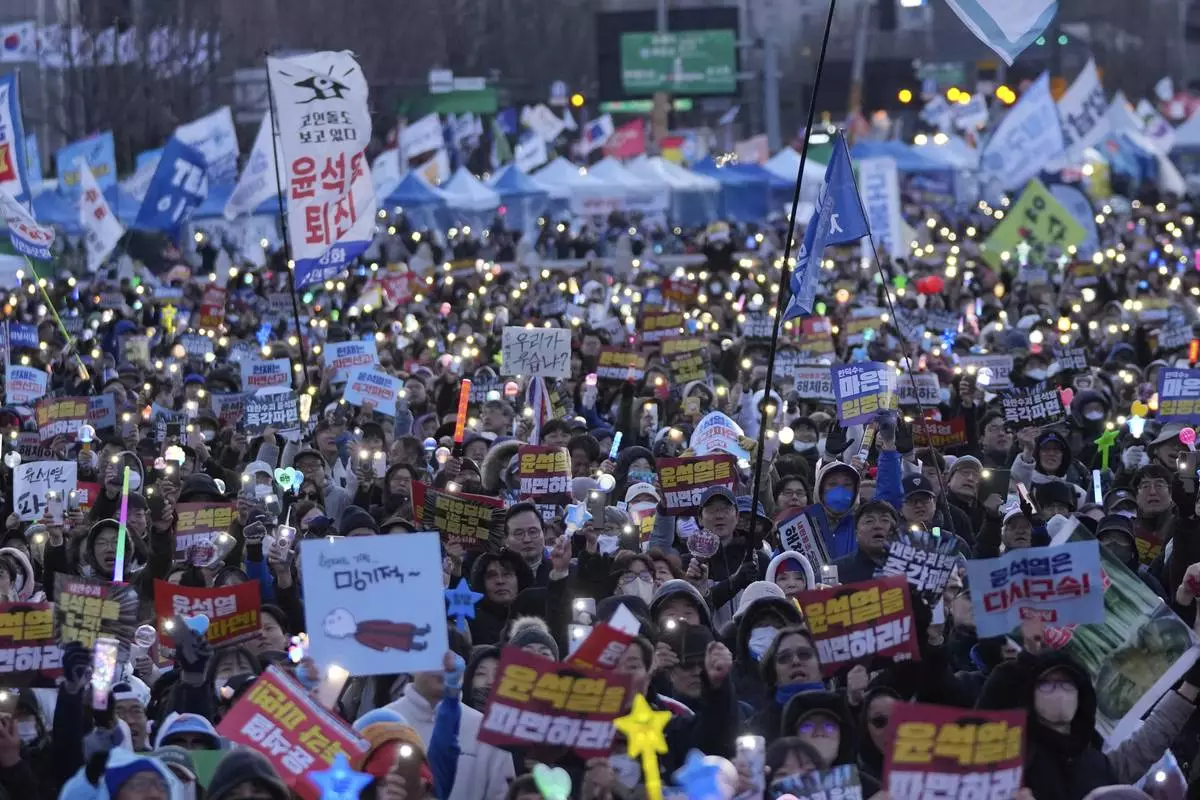
Protesters stage a rally calling for impeached South Korean President Yoon Suk Yeol to step down in Seoul, South Korea, Saturday, March 29, 2025. The banners read "Dismiss Yoon Suk Yeol." (AP Photo/Ahn Young-joon)
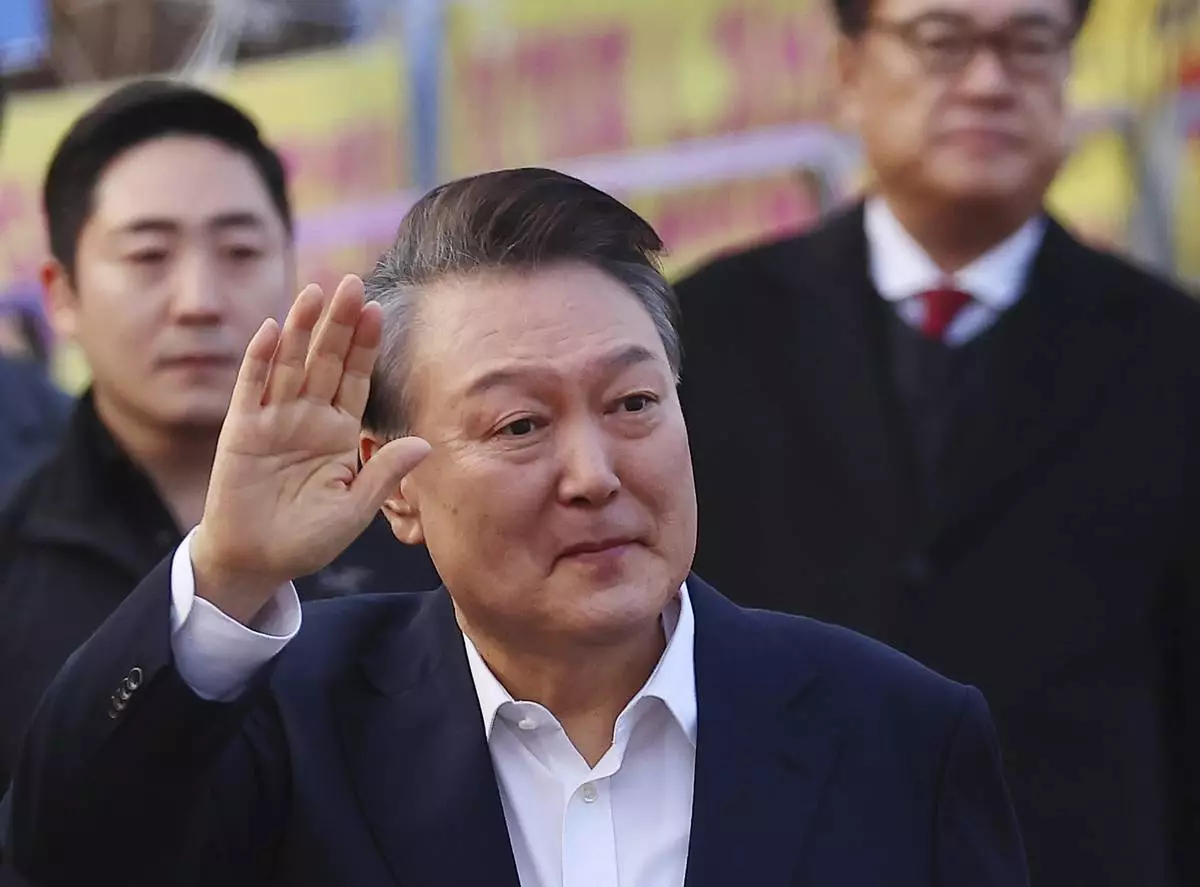
FILE - Impeached South Korean President Yoon Suk Yeol greets his supporters as he comes out of a detention center in Uiwang, South Korea, on March 8, 2025. (Kim Do-hun/Yonhap via AP, File)
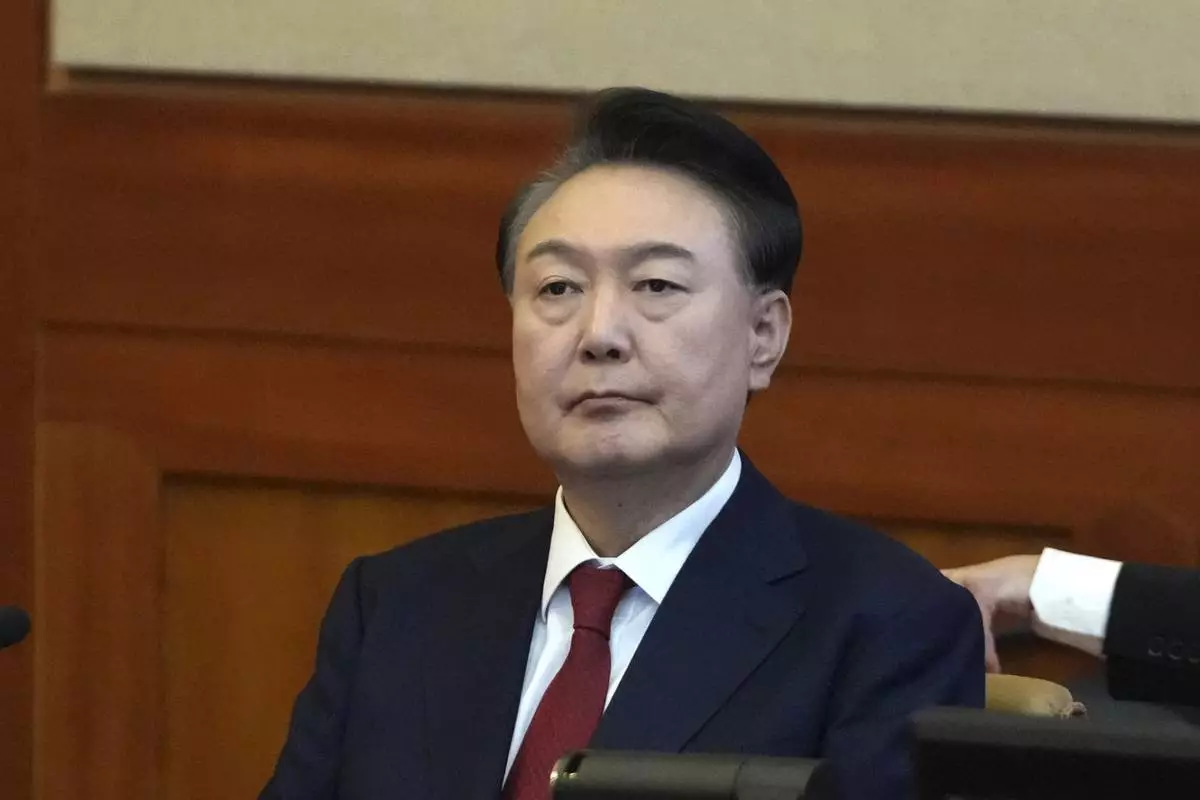
FILE - South Korea's impeached President Yoon Suk Yeol attends a hearing of his impeachment trial at the Constitutional Court in Seoul, South Korea, on Feb. 11, 2025. (AP Photo/Lee Jin-man, Pool, File)
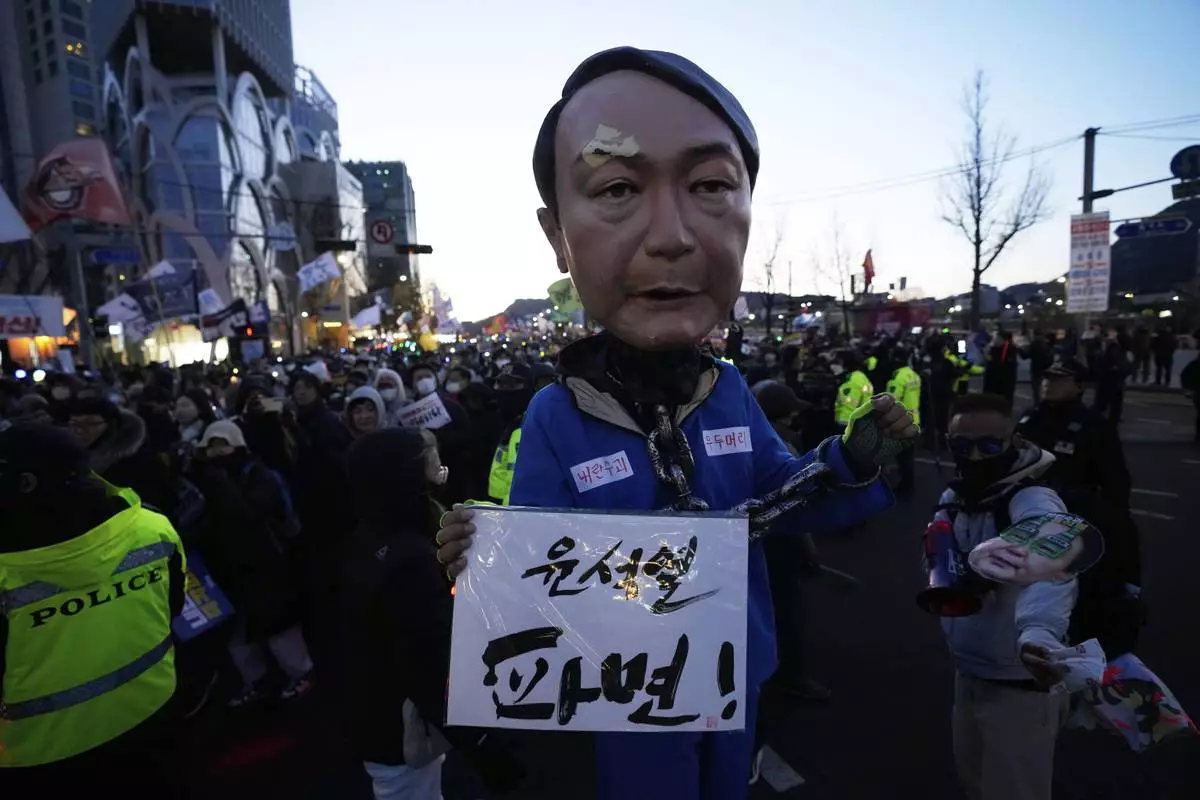
A protester wearing a mask of impeached South Korean President Yoon Suk Yeol attends a march during a rally calling for Yoon to step down in Seoul, South Korea, Saturday, March 29, 2025. The banner reads "Dismiss Yoon Suk Yeol." (AP Photo/Ahn Young-joon)




